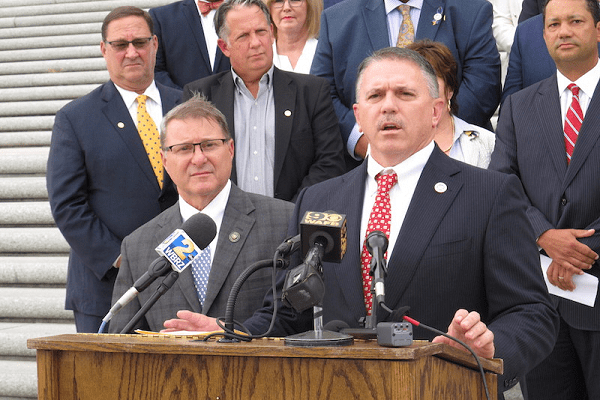
7.17.20 – BATON ROUGE (AP)
Gov. John Bel Edwards has signed the business lobby’s main priority of the last election cycle into law, changes to Louisiana’s civil litigation rules aimed at lessening the money people can win against insurance companies and businesses in car accident lawsuits.
The bill signing was posted on the Legislature’s website Thursday.
The Democratic governor vetoed an earlier, more sweeping version of the civil justice system changes and negotiated with the majority-Republican Legislature and business lobbyists on a final compromise passed in the special session that ended June 30.
Edwards’ signature on the bill was expected after the deal was struck, but the decision still represented a significant victory for business organizations that worked to elect Republican lawmakers in 2019 who pledged to support the changes. They also had to reach agreement with a governor whose allies and deep-pocketed campaign contributors include personal injury lawyers who opposed the changes.
Supporters claim the “tort reform” effort will lower insurance rates, which are the nation’s second-highest, by making litigation less lucrative. Opponents call it a giveaway to business that will damage injured people’s ability to receive adequate compensation.
Stephen Waguespack, president of the Louisiana Association of Business and Industry, said the bill — sponsored by Republican House Speaker Clay Schexnayder — “will help begin the process of rebuilding Louisiana’s insurance markets.”
The goal of the civil litigation system changes is to reduce the number of lawsuits filed in car accidents, lessen the lawsuits that are successful and shrink the damages awarded. Backers of the effort said a Louisiana legal environment that encourages frivolous lawsuits with promises of big payouts is damaging existing business in the state and making it harder to draw new industry.
Senate Republican leader Sharon Hewitt called passage of the bill “a historic accomplishment.”
Opponents, largely lawyers and Democrats, repeatedly noted the bill doesn’t contain a commitment that it would lower insurance rates — an argument Edwards himself raised in his veto of the previous bill by GOP Sen. Kirk Talbot. Critics also said the measure would keep people from getting money needed to cover their medical bills and could increase costs for courts.
Negotiations over Schexnayder’s bill went into the final hours of the 30-day June special session. Some lawmakers blamed the intense disagreements over the bill for keeping them in session longer than otherwise would have been needed to piece together the state budget and cut business taxes.
The deal passed with a 35-4 Senate vote and 86-15 House vote on the last day of session.
Schexnayder’s bill, which takes effect on Jan. 1, will:
—Force jury trials more frequently, so that lawyers have to argue damage claims to more people than a single judge. The measure drops the threshold for a jury trial from claims that exceed $50,000 to claims larger than $10,000, with some exceptions.
—Limit the mentions of insurance coverage during a trial. Bill supporters said that juries were more likely to give higher damage awards to people if they expected an insurance company, rather than an individual, to cover the costs.
—Cap certain medical expenses for which damages can be awarded. This change doesn’t apply in medical malpractice cases or in lawsuits against state agencies, state boards and commissions, parish sheriffs, school boards or other local government agencies.
—Allow information about whether someone was wearing a seatbelt as evidence in litigation.
Edwards’ signature and the enactment of the law changes doesn’t appear likely to wrap up the debate, however. Waguespack said his organization intends to continue to push for more changes to the state’s civil litigation system.
“This new Legislature is obviously hungry to change Louisiana’s reputation for a poor legal climate and (Schexnayder’s bill) appears to be simply the first bite at that apple,” Waguespack said in a statement issued after the measure’s passage. “Our work has only just begun.”
